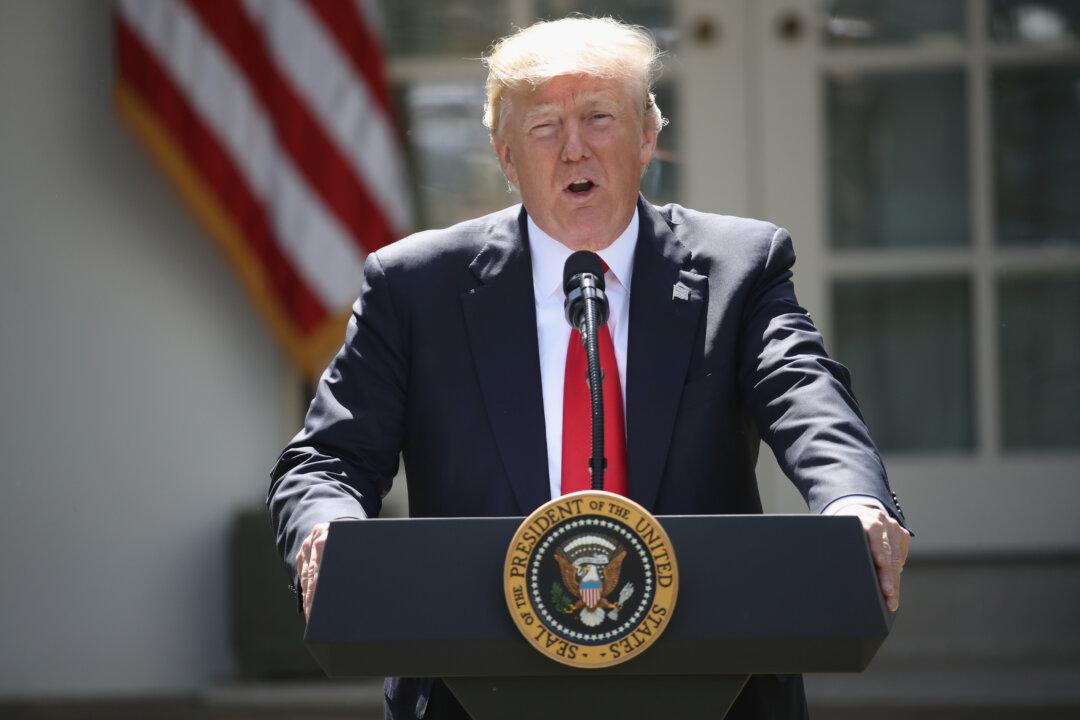News Analysis
WASHINGTON—When a coalition of more than 40 conservative political activists and energy industry advocates encouraged President Donald Trump in a May 8, 2017, letter to make good on his campaign promise to pull the United States out of the Paris Climate Accord, they likely had no idea how crucial that doing so would be for the president’s 2020 reelection campaign.





